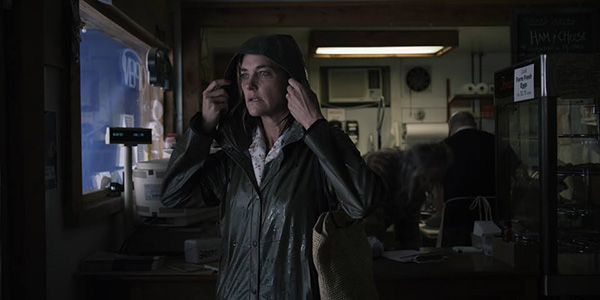
Few horror films have the ability to truly shock their audience, but Jim Mickle’s “We Are What We Are” does so effortlessly. In an exclusive interview with WSN, Mickle, an alumnus from the Tisch School of the Arts, discussed how he accomplished this feat.
Chronicling the decomposition of a tight-knit rural family, the film — a loose remake of a 2010 Mexican film of the same title — takes its viewer from the death of a matriarch to the depths of a damning and abysmal secret in under two hours. In its simplest form, the film is a story about the power of family ties.
“[Co-writer] Nick [Damici] and I wanted to tell a story about secrets,” Mickle said. “Though this family is made up of monsters, we wanted each character to be seen as a real person.”
Even though the film is technically a remake, Mickle explained that his version of the plot deviates from the original. One of the largest differences viewers will see is a change in the family dynamic.
“The 2010 movie focuses much more on the kids and their competition in reviving the family they once had,” he said. “Our movie is more personal and shows how each family member’s role plays a part in how their demise ultimately occurs.”
The story did not change much from the original script, but Mickle decided to portray the same tale through a different lens rather than shoot an English version of the Mexican film.
Another memorable aspect of the film is its cleverness in creating tension surrounding an otherwise tranquil environment. Mickle explained that the idea of isolation was important in making the family’s life seem more normal.
“Though you might have a sense that there is something going on in their home, you don’t really know the ins and outs of their situation until you see it for yourself,” Mickle said.
In creating this hallmark tension, the director chose to limit his inspiration from past horror classics to certain elements from Sean Durkin’s “Martha Marcy May Marlene.” He also utilized the “creep factor,” of Japanese horror films, as he called it, to convey the more grotesque elements in the narrative.
Mickle’s creative process continues even with the critical success of “We Are What We Are.” Keeping within his objective of creating an original film each time he directs, Mickle is currently editing a revenge thriller with a paranoid, comedic twist, titled “Cold in July.”
Mickle shows his talents as a horror director with “We Are What We Are.” And if the film is any sign, viewers should prepare themselves for — or perhaps live in fear of — the disturbing twist on comedy that Mickle is sure to inject into his next project.
Nora Blake is a staff writer. Email her at [email protected].






















































































































































